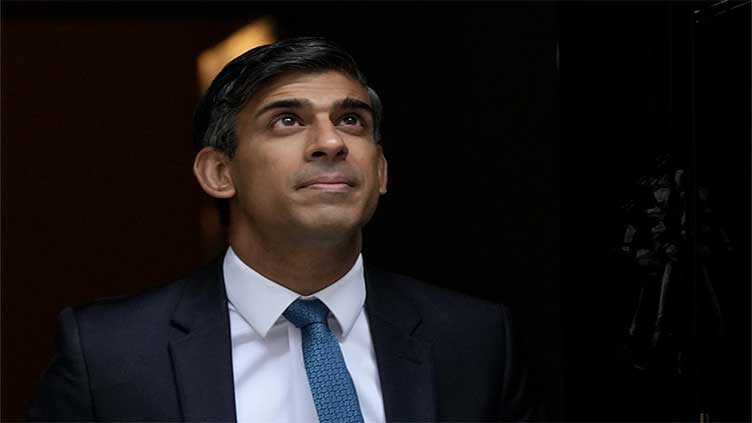King Charles III's cancer was caught early, UK prime minister says

World
King Charles III’s cancer was caught early, UK prime minister says
LONDON (AP) — King Charles III’s cancer was caught early and the whole country is hoping for a speedy recovery, British Prime Minister Rishi Sunak said Tuesday, as the monarch’s son Prince Harry reportedly flew from the U.S. to visit his father.
Buckingham Palace announced Monday evening that the king has begun outpatient treatment for an undisclosed form of cancer. It was found during his recent hospital treatment for an enlarged prostate but is a “separate issue” and not prostate cancer, the palace said.
“Thankfully, this has been caught early,” Sunak told BBC radio, adding that as prime minister he would “continue to communicate with him as normal.”
“Many families around the country listening to this will have been touched by the same thing and they know what it means to everyone,” Sunak said. “So we’ll just be willing him on and hopefully we get through this as quickly as possible.”
Less than 18 months into the reign that he’d famously waited decades to begin, the 75-year-old monarch has suspended public engagements but will continue with state business — including weekly meetings with the prime minister — and won’t be handing over his constitutional roles as head of state.
The palace said Charles, who has generally enjoyed good health, “remains wholly positive about his treatment and looks forward to returning to full public duty as soon as possible.”
The king’s younger son, Prince Harry — who quit royal duties in 2020, moved to California and has a troubled relationship with his father — has spoken to Charles about the diagnosis and “will be traveling to the U.K. to see His Majesty in the coming days,” said the office of Harry and his wife, Meghan. British media reported that he was en route Tuesday from Los Angeles.
Charles became king in September 2022 when his mother, Queen Elizabeth II, died at the age of 96 after 70 years on the throne.
News of the king’s diagnosis comes as his daughter-in-law Kate, Princess of Wales, recovers from abdominal surgery that saw her hospitalized for about two weeks.
Kate is taking a break from royal duties as she recovers. Her husband, Prince William, who is heir to the throne, also took time off to help look after her and the couple’s three children, but is due to preside over a ceremony at Windsor Castle and a charity dinner on Wednesday.
Charles departed from royal tradition with his openness about his prostate condition. For centuries Britain’s royal family remained tight-lipped about health matters.
Disclosing information about his cancer diagnosis — albeit in a limited way — is another break with tradition.
When U.K. monarchs had real power, news of illness was withheld for fear it might weaken their authority. The habit of secrecy lingered after royals became constitutional figureheads.
The British public wasn’t told that Charles’ grandfather, King George VI, had lung cancer before his death in February 1952 at the age of 56, and some historians have claimed that the king himself wasn’t told he was terminally ill.
In the final years of Elizabeth’s life, the public was told only that the queen was suffering from “mobility issues” when she began to miss public appearances towards the end of her life. The cause of her death was listed on the death certificate simply as “old age.”
When and how much to disclose about illness remains a difficult subject for many public figures. U.S. Defense Secretary Lloyd Austin has been criticized for not telling President Joe Biden or other key leaders that that he was being treated for prostate cancer, even when he was hospitalized in intensive care in January for post-surgery complications.
Buckingham palace said that the king “has chosen to share his diagnosis to prevent speculation and in the hope it may assist public understanding for all those around the world who are affected by cancer.”
Charles took the throne intending to preside over a slimmer monarchy with fewer senior royals carrying out ceremonial public duties. But with Charles and Kate both temporarily sidelined, Prince Harry self-exiled to California and Prince Andrew largely banished from view because of his association with sex offender Jeffrey Epstein, the royal “Firm” risks becoming severely overstretched.
William and Charles’ wife, Queen Camilla, are both expected to take on extra public engagements during the king’s treatment.
There are no current plans to call on the “counsellors of state” — senior royals, including the queen and the heir to the throne — to deputize for the monarch on constitutional duties such as signing legislation and receiving ambassadors.


